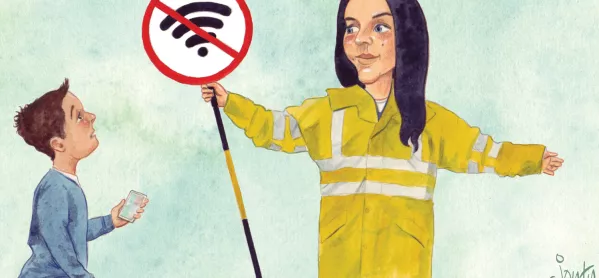There is always a need for caution when it comes to young people using technology. As we know, there are constant threats to online safety and there are lots of products and tools available to help us in the fight against these threats.
Not for the first time though, I was recently reminded that possibly the most powerful tool is not a digital one, but the trusted adults in the young person’s life.
You see, I spotted an article that was highlighting fears that children staying at a well-known holiday park might be exposed to sexually explicit content online because it doesn’t apply filters on its free wi-fi network. One parent had apparently raised the alarm when they’d found their child watching such content on their tablet.
But hang on a minute. Let’s just digest this. Is what children might view online purely down to the provider of the wi-fi network? Obviously filters are useful, and it’s great that some businesses have signed up to a “friendly wi-fi” scheme, which means that a filter has been installed, but in this situation, what’s really key is that the parent has an overview of what the mobile device is being used for. Can that responsibility really be pushed on to a holiday park?
Moreover, even if filters are in place, that doesn’t mean adults are off the hook and don’t need to give a second thought about what a young person might be accessing online.
Adults are in charge
Just days later, technology got another bashing in the press. This time it was with regard to a study carried out by Loughborough University, which found that many four-year-olds are not physically ready to start school. Worryingly, balance and coordination issues are hindering their ability to learn, and part of the reason for this is that they’re moving less.
At this point, I could guess where the news stories were going, ie, that mobile devices and screens are contributing to this marked decrease in children’s mobility.
But again, hang on a minute. Is it really the iPad contributing to this or is it that they are being allowed to sit staring at a screen for too many hours at a time?
Ultimately, who is in control of how much screen time a three-year old gets? It’s the not the technology per se, it’s the balance of how it’s used, which is decided by the adults in that child’s life. However, technology itself seems to be an easy and frequent scapegoat.
So let’s not blame a lack of filters or the fact that you tend to sit still while looking at a tablet screen for the issues in young people’s lives. When we see headlines that mention issues such as too much screen time, let’s think about what that actually means. Let’s remember that it is people who decide how technology is implemented - and that we should be controlling technology, so that it doesn’t control us.
Claire Lotriet is a teacher at Henwick Primary School in London. She tweets @OhLottie and blogs at clairelotriet.com




